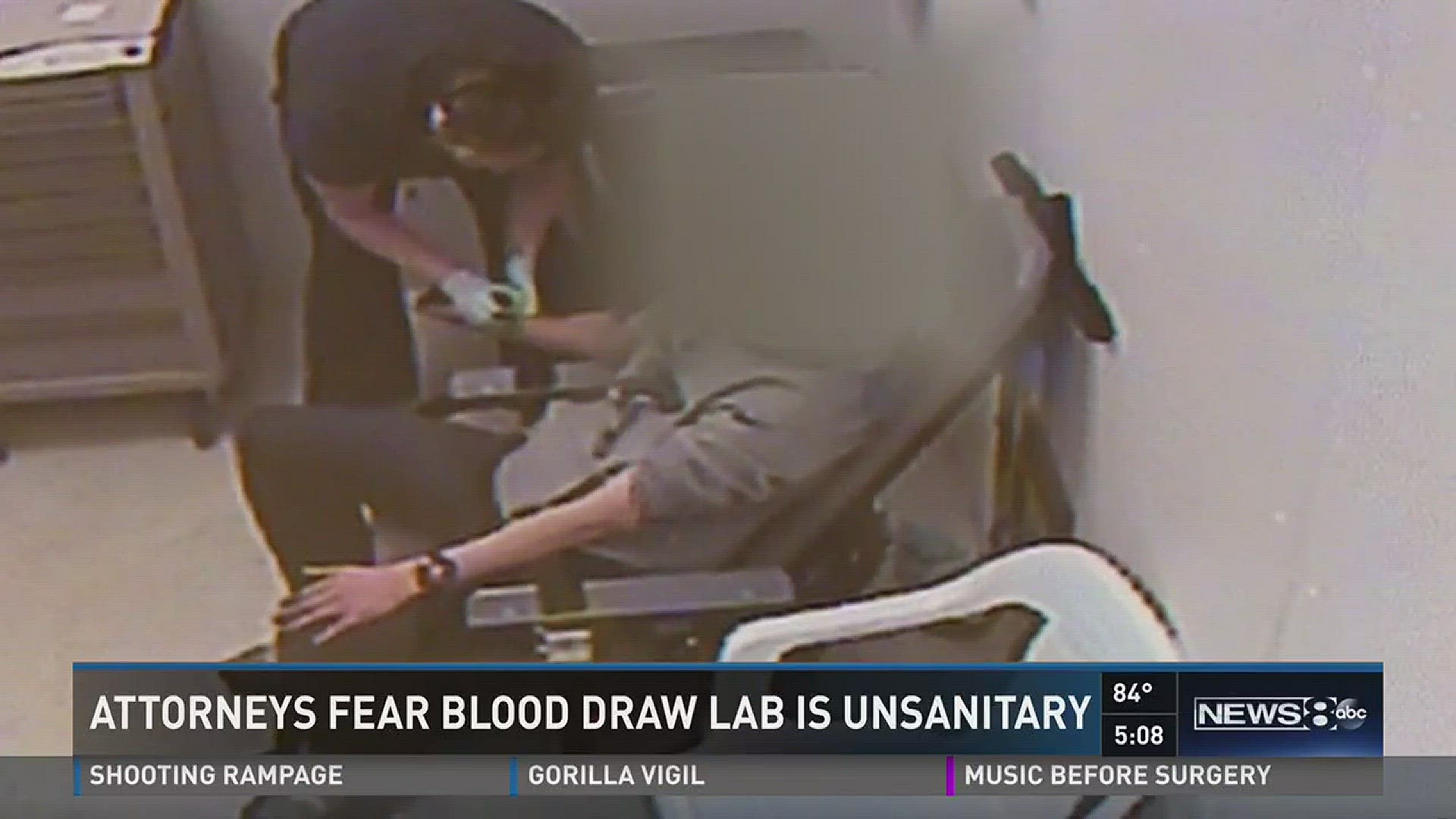Dallas County prosecutors are fiercely fighting efforts by defense attorneys to test the jail's blood-draw room and a chair where arrestees sit to give blood.
Defense attorneys want to test for diseases and infections. They believe testing would show that the room isn't sanitary, violating a state law that DWI blood tests be taken in a sanitary place, as well as a Supreme Court case.
"I think that what they're scared of is that every blood test up until 2016 could be considered to be unsanitary," said Mark Lassiter, a defense attorney involved in the effort. "All we want to know is the law being followed? The only reason I can think of is that they are scared we may find traces of vomit, feces and blood."
Prosecutors are fighting a judge's order that the chair in the room be bagged up and made available for testing by an expert hired by the defense attorneys. They have filed an appeal with the 5th court of appeals asking that criminal court judge Nancy Mulder's order be overruled.
The DA's office and the Dallas County Sheriff’s Department declined to comment on the situation.
This isn't the first time that Dallas County's blood draw procedures have been put under the microscope.
Six years ago, a judge threw out the blood test results of former Dallas police officer Jeffrey Fowler, ruling that they weren't taken under sanitary conditions. Fowler crashed his car in 2009, leaving a woman severely disabled.
Mark Gibbons, who was the DWI coordinator at the time, testified in a 2010 hearing that he didn't think the room where blood was being taken was sanitary. He told the court that he wouldn't eat or drink in them and that he would not want his own blood drawn in them.
The fallout from Fowler's case led to the creation of the blood draw room and vows to do better.
But over time, defense attorneys began to wonder if authorities had really followed through on their promises and decided to find out if the room was actually sanitary.
They began questioning jail officials and Parkland Hospital officials about their cleaning procedures.
Jail Captain Sheila Carter Bass testified that there was no strict schedule to clean the jail. She testified that inmates were the ones charged with cleaning blood draw room, but she had no idea when and how that was accomplished.
Randall Dean, who works for Parkland Jail Health, described himself as an "infection preventionist." Under questioning from defense attorneys, Dean acknowledged that he had no special training in infection control.
Dean testified that he conducted visual inspections of the room and that it appeared clean to him. He also testified that he did not know who cleaned the room and what chemicals they used. He also said he did not know if it was cleaned any differently than the central booking area.
"The Parkland Hospital employees say that it's the Dallas sheriff's responsibility," Lassiter said. "The Sheriff's Department says it's Parkland's responsibility. Not a single person in charge of Parkland or the jail has any idea how this room is cleaned. They don't even know if the inmates clean it with a dirty bucket. They have no idea."
About six months ago, a judge issued an order for the room to be tested by an expert hired by a group of defense attorneys. Lassister said they arrived at the jail with their expert at the appointed time and a jail sergeant denied them access even after being shown the court order.
"The guard said he doesn't care what the judge says this is not his jail," Lassiter said.
He says prosecutors ended up dismissing that court case rather than comply with the court order to allow testing of the entire room.
"The question I have why do they not want to know what's in the room?" he said. "Why are they making such a big deal to prevent us from knowing it?"

